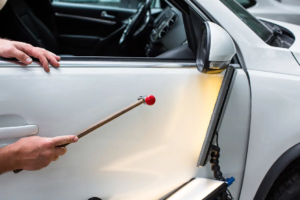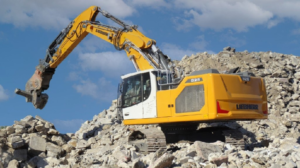
A 4WD SUV is designed to handle a variety of terrains and challenging conditions, making it a versatile and capable vehicle. However, the key to its performance and safety lies in its steering and suspension systems. Proper maintenance of these components is essential to ensure your SUV delivers a smooth ride and maintains its off-road prowess. In this blog post, we’ll explore steering and suspension maintenance tips specifically tailored to 4WD SUVs.
Understanding Steering and Suspension Systems
Steering System
The steering system is responsible for allowing you to control the direction of your SUV. In 4WD vehicles, this system typically includes power steering components, such as the power steering pump and steering gearbox, which make it easier to steer, especially in off-road conditions.
Suspension System
The suspension system is responsible for providing a comfortable and stable ride by absorbing shocks and maintaining tire contact with the road or trail. In a 4WD SUV, the suspension is designed to handle rough terrain while ensuring vehicle stability.
Regular Inspection
Visual Inspection
Regularly inspect your 4WD SUV’s steering and suspension components for visible signs of wear, damage, or leaks. Check for:
- Cracked or worn bushings
- Damaged or leaking shock absorbers
- Bent or damaged control arms
- Loose or worn tie rod ends
- Cracked or damaged steering components
Tire Inspection
Examine your tires for uneven wear, as this can indicate suspension problems. If your tires show signs of uneven wear, it may be time to have your suspension system checked and aligned.
Maintenance Tips
Lubrication
Keep your steering components properly lubricated. Grease the steering joints and fittings as recommended in your vehicle’s maintenance schedule. Well-lubricated components reduce friction, extending their lifespan and ensuring smooth steering.
Regular Alignment
Ensure your 4WD SUV’s wheels are properly aligned. Off-roading can lead to misalignment over time, causing uneven tire wear and affecting steering stability. Regular wheel alignment checks and adjustments are essential for maintaining a straight and stable drive.
Maintain Proper Tire Pressure
Maintaining the correct tire pressure is crucial for both steering and suspension performance. Underinflated tires can lead to excessive tire wear, reduced handling, and poor steering response. Overinflated tires can result in a harsh ride and decreased traction. Refer to your owner’s manual for the recommended tire pressure, and check it regularly.
Suspension Bushings
Suspension bushings play a critical role in maintaining ride quality and handling. Over time, they can wear out, causing squeaks, rattles, and reduced suspension performance. Inspect and replace worn suspension bushings as needed to restore ride comfort and handling precision.
Shock Absorbers
Your SUV’s shock absorbers are essential for absorbing impacts from rough terrain. Over time, they can lose their effectiveness. If you notice excessive bouncing or poor handling, it may be time to replace your shock absorbers.
Steering Fluid
Check your power steering fluid level regularly, and top it up as needed. Low power steering fluid can result in stiff steering and reduced control. If you notice any leaks, address them promptly and refill the fluid to the correct level.
Ball Joints and Tie Rod Ends
Ball joints and tie rod ends are critical for steering stability. Inspect them for signs of wear, such as excessive play or looseness. If you notice any issues, replace these components to maintain precise steering control.
Off-Roading Considerations
Regular Off-Road Inspections
If you frequently take your 4WD SUV off-road, it’s essential to inspect the steering and suspension components more frequently. Rough terrain and obstacles can accelerate wear and tear, so check for damage and loose parts after each off-road excursion.
Upgraded Suspension Components
Consider upgrading your suspension components to handle the demands of off-roading better. Lift kits, heavier-duty springs, and adjustable shock absorbers can enhance your vehicle’s off-road capabilities while maintaining its on-road comfort.
DIY vs. Professional Maintenance
While some maintenance tasks can be performed by experienced DIYers, others may require the expertise of a professional mechanic, especially for complex components like the steering gearbox or power steering pump. When in doubt, consult your vehicle’s owner’s manual and seek advice from a qualified mechanic to ensure proper maintenance.
Conclusion
Proper steering and suspension maintenance are essential for the overall performance and safety of your 4WD SUV. By regularly inspecting and addressing any issues, you can extend the lifespan of these vital components, enjoy a smoother ride, and ensure your vehicle’s off-road capabilities remain top-notch. Whether you’re navigating city streets or conquering rugged terrain, a well-maintained steering and suspension system is the key to a comfortable and controlled driving experience in your 4WD SUV.





